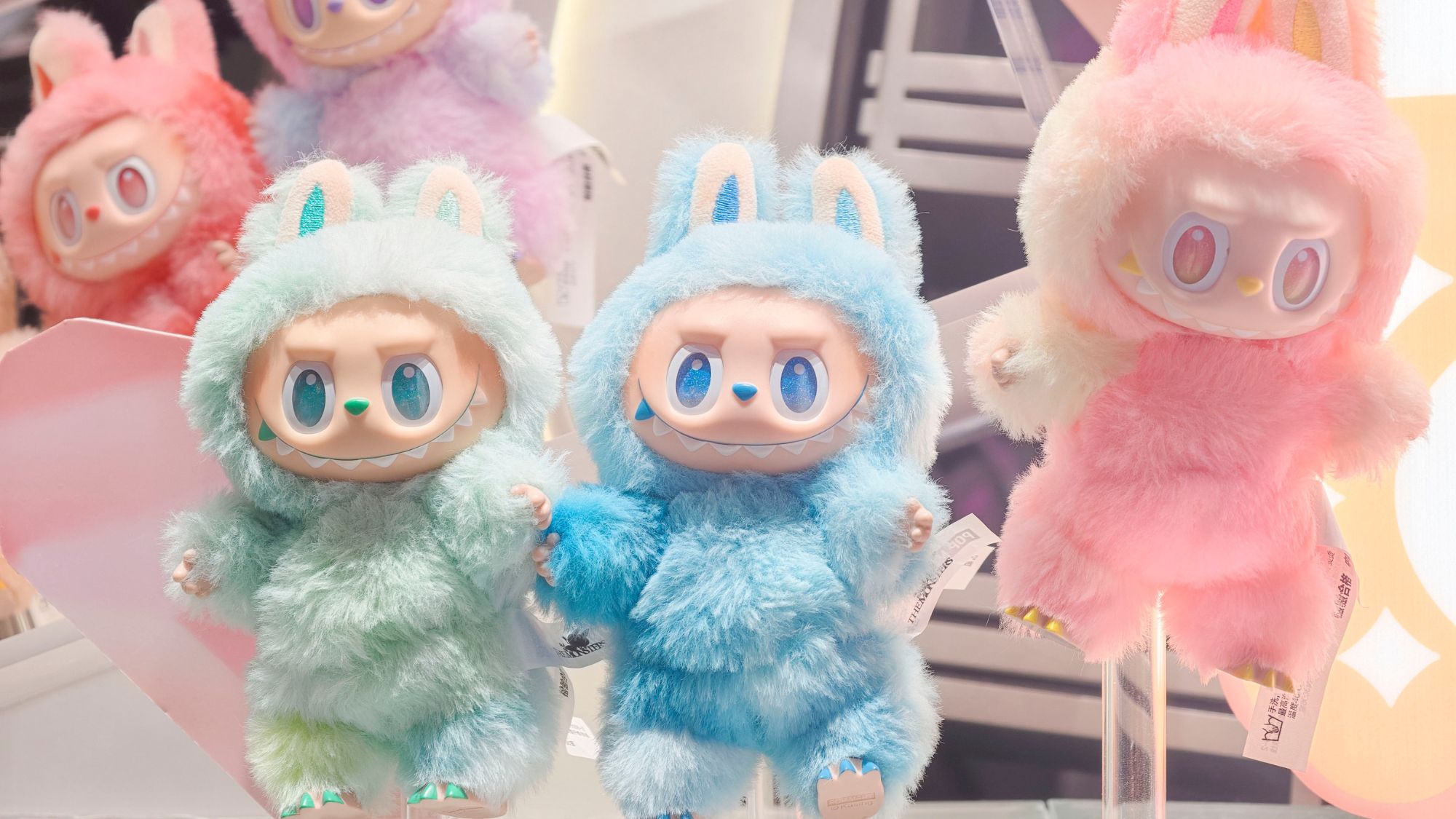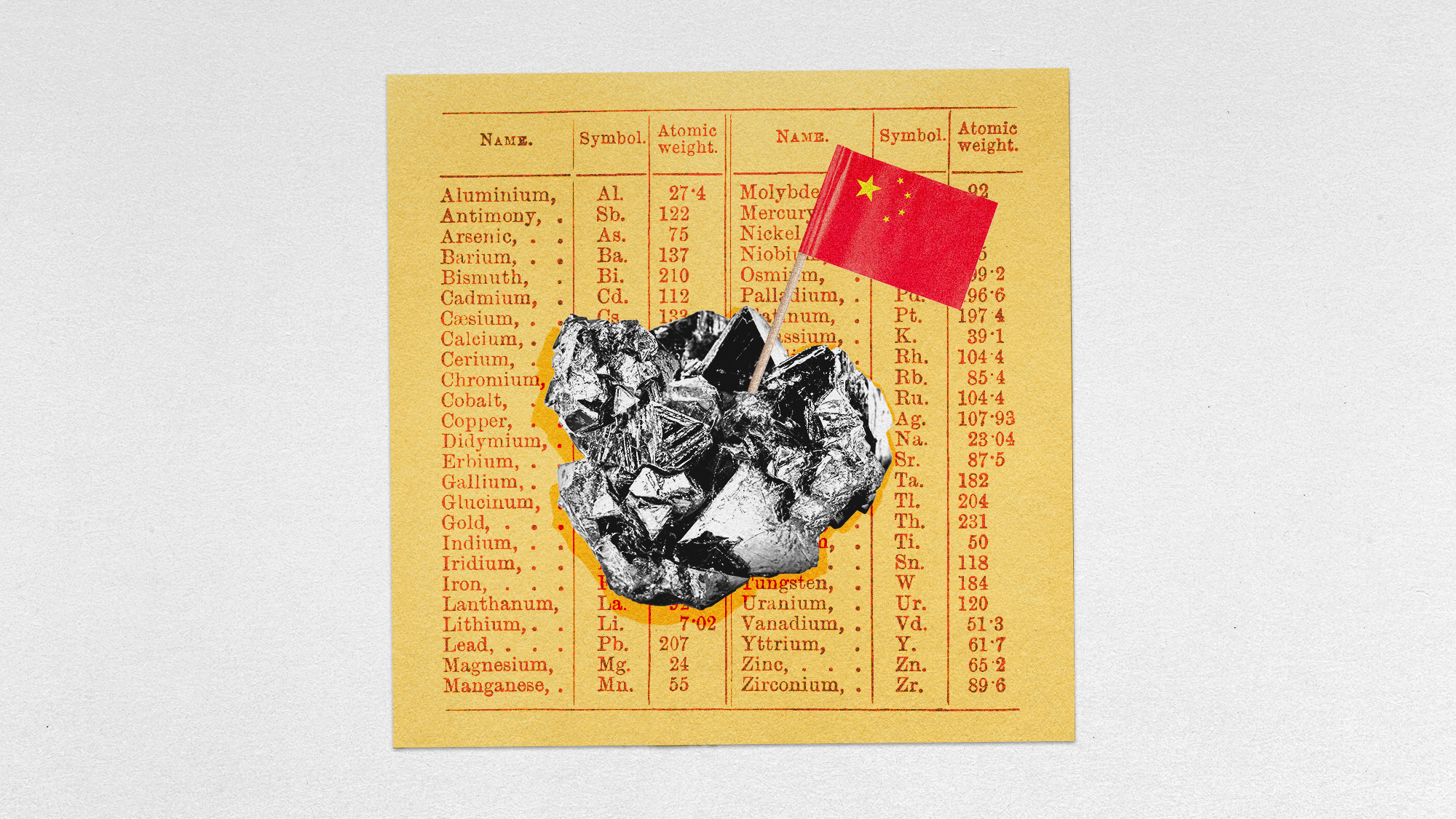Labubu: the 'creepy' dolls sparking brawls in the shops
Craze for the 'wildly collectible' soft toys has reached fever pitch among devotees

A free daily email with the biggest news stories of the day – and the best features from TheWeek.com
You are now subscribed
Your newsletter sign-up was successful
Tiny, toothy and mischievous, a peculiar-looking doll is taking the world by storm and causing chaos among shoppers across the UK.
Labubu is a "wildly popular keyring doll" that resembles a "crossover between a creature from 'Where the Wild Things Are' and an evil Teletubby", said The Independent. Whether this doll is cute, cursed or "well… a little bit scary" remains a matter of personal opinion. But thousands of adoring fans will do anything to get their hands on one.
Labubu has risen from a niche designer toy to an international icon, contributing "about $400 million" to Chinese toy company Pop Mart's revenue last year, said The National. And with the latest arrivals routinely selling out "within minutes", its popularity does not appear to be slowing down.
The Week
Escape your echo chamber. Get the facts behind the news, plus analysis from multiple perspectives.

Sign up for The Week's Free Newsletters
From our morning news briefing to a weekly Good News Newsletter, get the best of The Week delivered directly to your inbox.
From our morning news briefing to a weekly Good News Newsletter, get the best of The Week delivered directly to your inbox.
'Eagerly stocking up'
The first Labubu dolls were designed by Hong Kong artist Kasing Lung, who created a "whimsical and slightly eerie cast of characters" as part of his "Monsters" picture book series in 2015, said Mashable. The "turning point" came in 2019, when Lung struck a deal with Chinese toy "powerhouse" Pop Mart to turn his Nordic mythology-inspired designs into "wildly collectible designer toys".
Labubu dolls are the latest product to emerge from the explosion of the adult toy market during the pandemic, when people began "chasing nostalgia" and the joys of childhood, said The Times. The toys became a viral sensation in April last year when Lalisa Manobal, a member of K-pop sensations Blackpink, shared a photo of herself posing with a Labubu doll and "single-handedly launched a Gen Z global fixation with the cuddly monster".
Another major part of Labubus' attraction is their "cutesy sealed plastic packaging". The dolls come in a "blind box", so what is inside remains a secret until opened. Although this has enabled counterfeit dolls – known as "Lafufu" – to thrive, the mystery packaging means collectors are "eagerly stocking up until they have full sets of the toys".
'Mass brawl'
"To the untrained eye", the doll's "demonic eyes and menacing snaggle-tooth smile" seems just a little bit "creepy", said Metro. But after sneaking its way into hearts and homes around the globe, Labubu has fast become the "ultimate IT-girl accessory".
A free daily email with the biggest news stories of the day – and the best features from TheWeek.com
This has been helped by a Labubu being "spotted accompanying" a host of A-listers, from Rihanna to Dua Lipa, and because it "dangles" from countless designer handbags.
But if you're hoping to get your hands on one, it's likely to be a "battlefield", said the Daily Mail. The furry toys are so "must-have", a "mass brawl" recently broke out at the Westfield shopping centre in Stratford, east London. Video footage showed "several men hurling punches at one another as security guards and others desperately try to separate them". In response, Pop Mart announced it would pull the product from its stores across the UK until June, citing "safety issues".
The ongoing success of the doll could be in doubt as the "more viral and hyped an item becomes, the earlier adopters move on", said Vogue Business. Alice Brightmore, a fashion designer who began buying Labubus last year, said she has stopped using them as bag charms due to their extreme virality. "Now everyone's got them, so I'm kind of a bit sick of seeing them."
Rebekah Evans joined The Week as newsletter editor in 2023 and has written on subjects ranging from Ukraine and Afghanistan to fast fashion and "brotox". She started her career at Reach plc, where she cut her teeth on news, before pivoting into personal finance at the height of the pandemic and cost-of-living crisis. Social affairs is another of her passions, and she has interviewed people from across the world and from all walks of life. Rebekah completed an NCTJ with the Press Association and has written for publications including The Guardian, The Week magazine, the Press Association and local newspapers.
-
 The EU’s war on fast fashion
The EU’s war on fast fashionIn the Spotlight Bloc launches investigation into Shein over sale of weapons and ‘childlike’ sex dolls, alongside efforts to tax e-commerce giants and combat textile waste
-
 How to Get to Heaven from Belfast: a ‘highly entertaining ride’
How to Get to Heaven from Belfast: a ‘highly entertaining ride’The Week Recommends Mystery-comedy from the creator of Derry Girls should be ‘your new binge-watch’
-
 The 8 best TV shows of the 1960s
The 8 best TV shows of the 1960sThe standout shows of this decade take viewers from outer space to the Wild West
-
 The EU’s war on fast fashion
The EU’s war on fast fashionIn the Spotlight Bloc launches investigation into Shein over sale of weapons and ‘childlike’ sex dolls, alongside efforts to tax e-commerce giants and combat textile waste
-
 TikTok secures deal to remain in US
TikTok secures deal to remain in USSpeed Read ByteDance will form a US version of the popular video-sharing platform
-
 How will China’s $1 trillion trade surplus change the world economy?
How will China’s $1 trillion trade surplus change the world economy?Today’s Big Question Europe may impose its own tariffs
-
 Shein in Paris: has the fashion capital surrendered its soul?
Shein in Paris: has the fashion capital surrendered its soul?Talking Point Despite France’s ‘virtuous rhetoric’, the nation is ‘renting out its soul to Chinese algorithms’
-
 Will latest Russian sanctions finally break Putin’s resolve?
Will latest Russian sanctions finally break Putin’s resolve?Today's Big Question New restrictions have been described as a ‘punch to the gut of Moscow’s war economy’
-
 China’s rare earth controls
China’s rare earth controlsThe Explainer Beijing has shocked Washington with export restrictions on minerals used in most electronics
-
 The struggles of Aston Martin: burning cash not rubber
The struggles of Aston Martin: burning cash not rubberIn the Spotlight The car manufacturer, famous for its association with the James Bond franchise, is ‘running out of road’
-
 US to take 15% cut of AI chip sales to China
US to take 15% cut of AI chip sales to ChinaSpeed Read Nvidia and AMD will pay the Trump administration 15% of their revenue from selling artificial intelligence chips to China